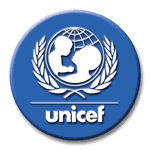
In its Swahili version, the game is called ‘Ungefanyaje’ (What would you do?). It takes the player through a series of relationship-based scenarios that emphasize the importance of HIV-prevention and testing.
‘Translating the game into Swahili makes it accessible to East African adolescents and young people,’ Voices of Youth coordinator Amber Oliver was quoted as saying.
Voices of Youth, or VOY, is a decade-old initiative focused on exploring the educational and community building potential of the Internet.
Through web boards, interactive quizzes, youth leadership profiles, live chats and more, VOY says it ‘provides thousands of people from over 180 countries with an opportunity to self-inform, engage in lively debate, and partner – with their peers and decision makers – to create a world fit for children’.
Prevention is considered essential to half the spread of HIV/AIDS. But an alarming 80 percent of all young people still don’t know how to protect themselves from the virus.
It is estimated that of the 2.3 million children under 15 living with HIV, two million are in sub-Saharan Africa. Hence reaching out to youth is seen as crucial.
Some early responses to the game, however, commented on the need to use a form of Swahili comprehensible across the region, and the need to make the game work on mobile phones.
Computer games have also been called ‘edutainment’ because of their mix of education and entertainment.
